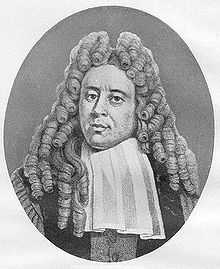Perizonius

Perizonius (or Accinctus) was the name of Jakob Voorbroek (October 26, 1651 – April 6, 1715), a Dutch classical scholar, who was born at Appingedam in Groningen.
He was the son of Anton Perizonius (1626–1672), the author of a once well-known treatise, De ratione studii theologici. Having studied at the University of Utrecht, he was appointed in 1682 to the chair of eloquence and history at Franeker through the influence of J. G. Graevius and Nikolaes Heinsius. In 1693 he was promoted to the corresponding chair at Leiden, where he died on 6 April 1715.
The numerous works of Perizonius entitle him to a high place among the scholars of his age. Special interest attaches to his edition of the Minerva sive de causis linguae latinae (Salamanca: Renaut, 1587) of Francisco Sánchez de las Brozas or El Brocense (ed. C. L. Bauer, 1793–1801), one of the last developments of the study of Latin grammar in its pre-scientific stage, when the phenomena of language were still regarded as for the most part disconnected, conventional or fortuitous.
Mention should also be made of his Animadversiones historicae (1685), which may be said to have laid the foundations of historical criticism, and of his treatises on the Roman republic, alluded to by Niebuhr as marking the beginning of the new era of historical study with which his own name is associated.
References
 This article incorporates text from a publication now in the public domain: Chisholm, Hugh, ed. (1911). Encyclopædia Britannica (11th ed.). Cambridge University Press
This article incorporates text from a publication now in the public domain: Chisholm, Hugh, ed. (1911). Encyclopædia Britannica (11th ed.). Cambridge University Press- The article on Perizonius in Van der Aa's Biographisch Woordenboek der Nederlanden contains full biographical and bibliographical particulars; see also F. A. Eckstein in Ersch and Gruber's Allgemeine Encyklopädie.